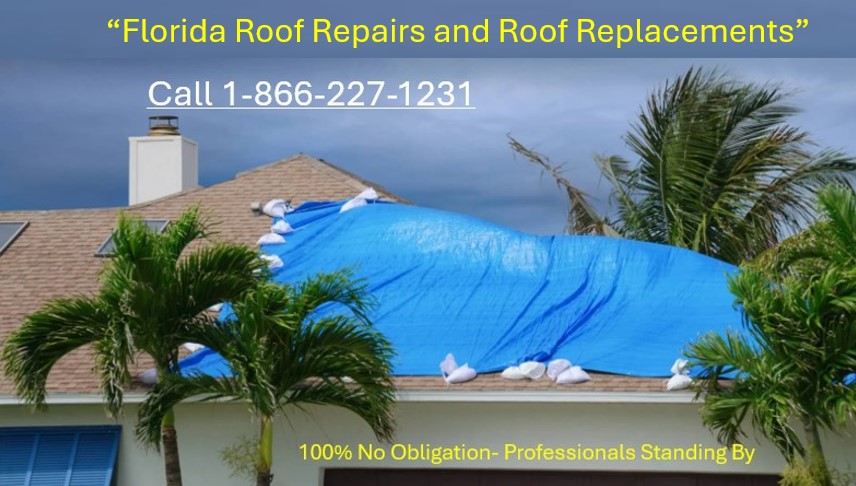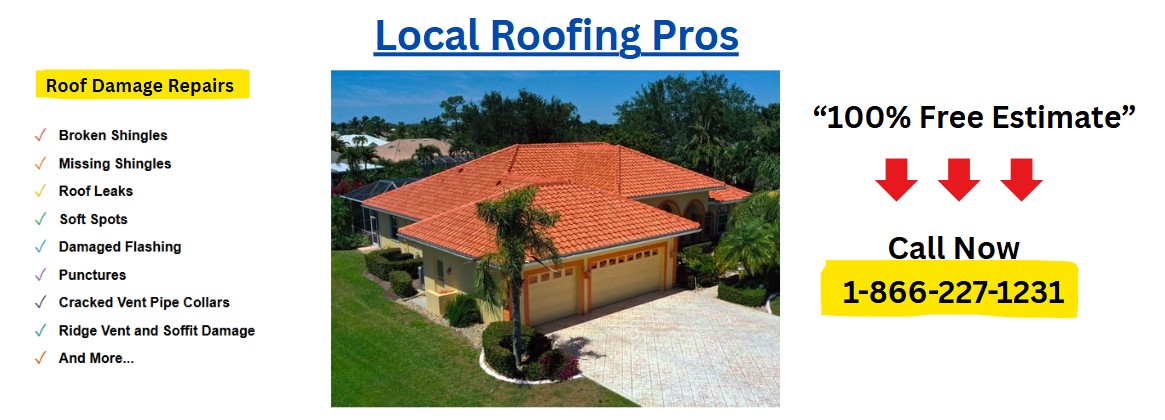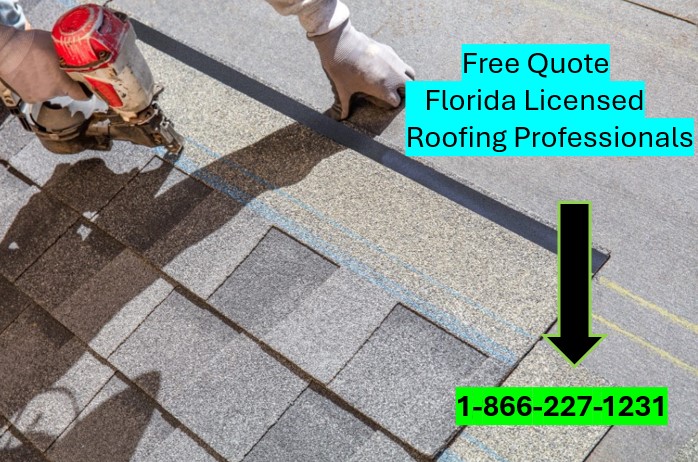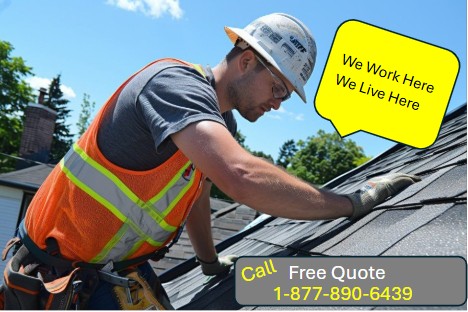Roofing Estimate: Your Definitive Guide to Roof Replacement Costs
Understanding Roof Replacement Costs in Florida
When it comes to sheltering your home, few investments are as critical as your roof. Homeowners in Florida face special challenges when seeking roof replacement costs due to extreme weather patterns, stringent hurricane codes, and varying material costs. Whether you're dealing with storm damage, humidity-related issues, or simply planning a renovation, understanding the factors that influence roofing costs can help you make wise decisions and get the best value for your investment.

Why Getting Multiple Roof Quotes Is Important
Knowledgeable homeowners know that obtaining different roof quotes is vital for any roofing project. Professional roofing contractors in Florida may provide significantly different estimates based on their skills, materials, labor costs, and approach to your specific roofing needs. By comparing at least several quotes, you can:
- Identify the competitive market rate for your roofing project
- Evaluate different material options and their cost implications
- Uncover potential issues or special considerations unique to your home
- Obtain better terms with your preferred roofing company
- Reduce the risk of overpaying while still ensuring quality workmanship

Key Factors That Influence Your Roof Installation Quote in Florida
Roof Size and Complexity
The size of your roof is typically the starting point for any estimate. However, the layout of your roof architecture significantly impacts the final quote. Homes with multiple levels, dormers, chimneys, and skylights require more work, materials, and expertise to properly install.
Roofing Materials
Florida homeowners have various roofing material options, each with different expenses and strengths, with critical considerations for hurricane resilience and high heat tolerance:
- Asphalt Shingles: The most common option, typically ranging from $3.25 to $5.75 per square foot installed. For Florida homes, impact-resistant versions rated for high wind zones are strongly recommended and may be required by code in many coastal areas. These work effectively in Florida climate conditions and come with warranties typically between 25-30 years, though Florida's intense sun and humidity may shorten their practical lifespan.
- Metal Roofing: Investment-grade initially ($9-$15 per square foot) but offers superior durability (40-70 years), energy efficiency, and excellent resistance to Florida's weather challenges including hurricane-force winds and torrential rain. Standing seam options are increasingly popular for their hurricane resistance, solar reflectivity, and cooling benefits that can reduce energy costs during Florida's long cooling season.
- Tile Roofing: Premium options ($16-$32 per square foot) that provide distinctive appearance and exceptional longevity (50-100 years). Clay and concrete tiles are particularly popular in Florida for their Mediterranean aesthetic that complements many Florida architectural styles. In Florida areas with extreme weather, these materials offer excellent protection but require enhanced framing due to their weight and proper anchoring for hurricane resistance.
- Flat/Low-Slope Systems: Common for many Florida homes and buildings, especially in South Florida ($7-$12 per square foot). These include modified bitumen, built-up roofing, and single-ply membrane systems designed to withstand Florida's intense UV exposure and heavy rainfall.
- Metal Tiles and Stone-Coated Steel: Growing in popularity across Florida ($9-$14 per square foot), these systems mimic the appearance of clay or concrete tiles while offering improved wind resistance and lighter weight, which is advantageous during hurricane conditions.

Removal of Existing Roofing
Most Florida building codes allow up to multiple layers of roofing material before requiring complete removal. If your home already has several layers, the tear-off of old materials will considerably impact your quote. Proper disposal costs vary throughout Florida based on municipal rules and recycling expenses, with some counties having higher disposal fees than others.
Structural Repairs
Once the existing materials are removed, contractors often uncover structural issues that need addressing. Common problems in Florida include:
- Water-damaged roof decking from Florida's frequent heavy rains and potential hurricane damage
- Rotted rafters or trusses due to Florida's persistent high humidity and potential termite damage
- Sagging areas requiring reinforcement, especially critical in older homes lacking hurricane straps
- Moisture control improvements needed for Florida's tropical climate to prevent mold and mildew growth
Quality roofing quotes should include contingencies for potential repairs, though the full extent may not be clear until work begins.
Local Building Codes and Permits
Florida building codes vary by municipality, with coastal areas implementing the strictest requirements. The Florida Building Code includes specific provisions for the High Velocity Hurricane Zone (HVHZ) in Miami-Dade and Broward counties, with other coastal regions having similar enhanced requirements. Many regions require specific materials, installation methods, or additional features to meet wind resistance standards. Permit costs also differ significantly, ranging from $250 to $1,000 depending on your location within Florida, with coastal and high-value areas typically commanding higher fees.
Labor Costs and Seasonality
Roofing labor rates fluctuate throughout Florida, with urban areas like Miami, Tampa, Orlando, and Jacksonville typically commanding higher prices than rural regions. Additionally, roof replacement quotes tend to be elevated during high demand times, particularly after major storms or hurricanes when demand for roofing services is at its peak. Many Florida homeowners find better pricing during the winter dry season (November through April), avoiding both the hurricane season and summer afternoon thunderstorms that can delay installations.
Understanding Your Roof Quote Components
A detailed roof quote should be transparent and itemized. Look for these essential components:
- Material specifications: Type, grade, color, and warranty information, with specific wind ratings appropriate for your Florida location
- Labor details: Work schedule, crew size, and installation rates
- Preparation work: Removal of old materials, property protection measures
- Structural repairs: Anticipated decking replacement and associated costs
- Flashing and waterproofing: Details for valleys, chimneys, vents, edges, with particular attention to water-tight seals critical in Florida's heavy rain environment
- Secondary water barrier: Details on underlayment and sealed roof deck systems required by Florida building codes
- Hurricane mitigation features: Specifications for hurricane straps, enhanced fastening patterns, and wind-resistant installation methods
- Ventilation improvements: Ridge vents, soffit vents, attic fans designed to reduce heat buildup and humidity common in Florida attics
- Warranty information: Manufacturer warranties and workmanship guarantees, including wind warranty limits
- Payment schedule: Down payment requirements and payment milestones
- Insurance and licensing: Proof of liability insurance and Florida contractor licensing

Red Flags in Roofing Quotes
When reviewing roof replacement quotes in Florida, watch for these warning signs:
- Substantially lower prices than other quotes (potentially indicating inadequate materials or cut corners on hurricane-resistant features)
- Excessive upfront deposits beyond 25-30% of the total project cost
- Aggressive pitches urging immediate decisions, especially after storms
- Lack of proper licensing for Florida roofing contractors (verify through myfloridalicense.com)
- No written contract or vague, simplified estimates
- Absence of physical business address in Florida or nearby
- Few references from recent projects, particularly in your specific county
- No mention of Florida Building Code compliance or hurricane mitigation features
- Door-to-door solicitation following storms (a common tactic of "storm chasers")
Insurance and Roof Replacement in Florida
Many roof replacements in Florida are initiated following storm damage or hurricane impacts. Understanding how insurance impacts your roofing project is critical in Florida's complex insurance landscape:
- Document damage thoroughly before repairs begin
- Contact your insurance provider to understand your coverage and report claims promptly
- Schedule an inspection with your insurance adjuster
- Compare the insurance estimate with contractor quotes
- Understand your hurricane deductible which is typically higher than standard deductibles
- Verify contractor experience with insurance claims in Florida
Some Florida roofing companies specialize in insurance claims and can help navigate the process, including supplemental claims for additional damage discovered during replacement. Be aware that Florida has specific insurance claim timelines and documentation requirements that must be followed.

Financing Your New Roof in Florida
In addition to insurance, Florida homeowners have several options for financing roof replacements:
- Home equity loans: Often feature the lowest interest rates for major home improvements
- FHA Title I loans: Government-backed home improvement loans for qualified borrowers
- Roofing company financing: Many Florida roofing companies offer financing options through partnerships with lenders
- PACE financing: Some Florida counties offer Property Assessed Clean Energy financing that ties repayment to property taxes
- Wind mitigation discounts: While not financing, installing a code-compliant roof can significantly reduce your insurance premiums, effectively offsetting some costs over time
- Florida assistance programs: Following major hurricanes, state and federal programs sometimes offer grants or low-interest loans for qualifying homeowners
Maximizing Your Roof Investment in Florida
A new roof is more than an expense—it's an enhancement in your home's value, protection, and efficiency. To maximize this investment in Florida:
- Consider energy efficiency upgrades like reflective materials appropriate for Florida's intense sun and long cooling season
- Upgrade attic insulation and ventilation during roof replacement to combat Florida's heat and humidity
- Select impact-resistant materials designed specifically for Florida's hurricane-prone environment
- Invest in proper underlayment and secondary water barriers for enhanced water protection during heavy Florida rains
- Secure extended warranties for both materials and workmanship, with attention to wind warranty limits
- Document wind mitigation features to qualify for insurance premium discounts
- Schedule regular maintenance inspections to extend roof lifespan in Florida's challenging climate
Finding Reputable Roofing Contractors in Florida
The quality of your roof installation is just as important as the materials used, especially in a hurricane-prone state. To find trustworthy roofing professionals in Florida:
- Verify current Florida contractor licensing through the Department of Business and Professional Regulation (myfloridalicense.com)
- Review local ratings on multiple platforms
- Request and speak with local references, preferably in your same county
- Verify manufacturer certifications for your chosen materials, particularly for enhanced hurricane warranties
- Confirm membership in professional organizations like the National Roofing Contractors Association and the Florida Roofing and Sheet Metal Contractors Association
- Check the Florida Better Business Bureau for complaints
- Verify insurance coverage, including workers' compensation and liability insurance
- Seek specialists in hurricane-resistant installations, particularly in coastal areas
Conclusion: Making Your Final Roofing Decision
When comparing roofing proposals in Florida, remember that the minimum cost rarely represents the smartest investment. Consider the contractor's experience, material durability, warranty assurances, and the detail of the quote. Your roof safeguards everything beneath it—choosing the right roofing partner is worth the attention to detail, especially in a state where your roof is your first line of defense against hurricanes.
By understanding the factors that influence roofing costs in Florida, you can approach your roof replacement project with peace of mind, knowing you're making strategic decisions that will protect your home for decades to come.
FAQs About New Roof Quotes in Florida
How long should a roof replacement take in Florida? Most residential roof replacements in Florida take 2-5 days depending on size, complexity, and weather conditions. Summer afternoons often bring thunderstorms that can delay work, so many contractors start early in the morning during rainy season.
What time of year is best for roof replacement in Florida? Florida homeowners often find the dry season (November through April) to be optimal for roofing projects due to reduced rainfall and being outside hurricane season. This period typically offers more consistent working conditions and often better availability of contractors compared to the busy post-storm periods.
Do I need to leave my home during roof replacement? While you can generally remain in your home, be prepared for noise and commotion. Some families with seniors, pets, or home offices prefer to make alternative arrangements during the most disruptive phases, particularly during tear-off. Florida's heat makes attics extremely hot during roof work, potentially affecting your home's interior comfort.
How often should Florida homeowners replace their roofs? Depending on the roofing material and Florida's specific environmental factors, replacement intervals typically range from 15-20 years for standard asphalt shingles, 30-50 years for metal roofing, and 50+ years for quality tile. However, hurricane impacts can necessitate earlier replacement regardless of roofing age.
Will a new roof lower my home insurance premiums in Florida? Many Florida insurance providers offer substantial discounts for new roofs, especially those with impact-resistant or hurricane-resistant ratings. A properly documented wind mitigation inspection after roof replacement can result in significant insurance savings, sometimes 15-30% off annual premiums. Contact your insurance agent to understand potential discounts.
Can I get a new roof quote without a home visit? While some contractors offer ballpark figures based on satellite imagery, accurate quotes require professional on-site inspection to assess your roof's specific condition, especially in Florida where underlying damage from previous storms may not be visible from aerial views. An in-person assessment is also necessary to evaluate structural considerations for hurricane resistance.


